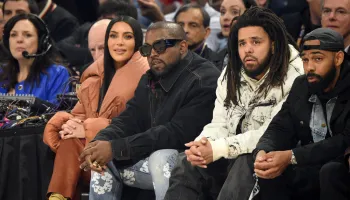
Source: screen cap / Daily Blast Live
When the unfathomable news of NBA Legend Kobe Bryant’s death broke, it shattered the world. While many were trying to figure out if it was real or a hoax, journalists and bloggers across the country were scrambling to fact check the event while some were just putting out random and triggering misinformation for the sake of clout and being “first.”
While it’s understandable that in the digital age no one wants to be on the tail end of news, one important thing has been forgotten and that’s to make sure that the news you are spreading is correct. As journalists, our number one goal above all else is to make sure that the information we distribute is not only accurate but also morally correct.
During a topic segment on the talk show Daily Blast Live, veteran journalist Lindsey Granger dropped a whole lot of truth bombs about not only the mishandling in the way media covered the tragedy; but also the insensitivity regarding personal feelings towards Kobe himself hours after he passed.
Hours after TMZ broke the news of Bryant’s passing to his wife and the world, Washington Post Political Journalist Felicia Sonmez tweeted out a 2016 article from Daily Beast that resurfaced Bryant’s 2003 case of sexual assault—which was dismissed after the accuser refused to testify or show up in court.She pointed out that Sonmez, a high ranking political journalist, was operating in a manner that is likened to a blogger versus a writer with actual training.
“I’m looking at the journalist Felicia,” Granger said. “She is someone who was a went through a sexual assault herself and she said that in the Washington Post, when she wrote an article a couple of years ago detailing her experience; but as a journalist it’s our job to objectively report the news. I know that may be tough for someone who survived sexual assault but looking at the story, she didn’t give the story any context and she got upset that she was being attacked on Twitter for tweeting a link that basically was condemning Kobe’s character and accusing him of rape.”
Granger didn’t stop there, she went on to call out everything wrong that Sonmez did and educated her on how to address a complex situation as a journalist.
”I think that her job as a journalist was to put that in context, you have a responsibility and you need to have the journalistic acumen to write the full story,” Granger continued. “Go to the Washington Post and say this man was a nuance character, this man has a detailed layered history that we need to discuss.’ But don’t just tweet that out two hours after his death and be a political reporter for the Washington Post and tweet that and leave it there, because you’re opening yourself for the attacks you are receiving.”
Attacks that were honestly valid. The trolling tactic of tweeting links without proper context or ill-timed for shock value is definitely an improper technique that should have never happened at the hands of a journalist. But attacking celebrities for shock value is what sells. A brazen trend started by blogger Perez Hilton in 2005. Hilton’s gossip and tabloid style blog offered a fresh, yet demeaning and salacious news style that offered a more opinionated option for Entertainment News. But his style was never meant to be considered an industry standard—although that’s what his success led to.
Hilton’s model coupled with sites’ high traffic led to an explosion of blogs with an unconventional style of news reporting, which lacked empathy and often times facts. The unorthodox method eventually bled into journalism, producing a media culture that was focused on clickbait headlines and being first —a model still being used until this day.
”We are in a time where we don’t know what journalism is anymore,” Granger said. “We have a president that attacks journalists, we have TMZ who broke the news to Vanessa Bryant that her husband passed away—you know, what are we doing now for people who call themselves journalists? We have journalists who attacked a seven-year old child, which is Blue Ivy, and we look at them calling out her characteristics. We need to do better altogether as journalists and I look at this woman and I say it was your responsibility just to do better—and give it more time than just two hours after the man passes away to say what you think about him if it’s negative.”
A sentiment that many echo one hundred percent. As journalists, our job is not to break death or sensitive topics just for the sake of being first or just to be cited. Yes, there will always be blog style outlets like TMZ; but as professionals journalists, it’s our job is to operate with full integrity while unbiasedly telling the story.
“This is a complicated thing to talk about,” Granger continued. “But I think as a journalist if you’re going to take that name and that stance and that dignity of a position, I think you should do it properly and at least tell the complicated story with as much care as possible and that goes for everyone involved in this Kobe situation. We can all just have a little bit more empathy,” Granger concluded. Whether you’re the outlet trying to be first that were completely wrong saying his whole family was on the plane, have some empathy for other people. People lost their lives, so we have to learn to step back and remember that this man was a legend for so many people, he was also a complicated human; but let’s not assassinate his character when he who is no longer here to defend himself. We have to do better.”
A great journalist knows how to break a story with facts and not gossip. Overall, this isn’t an attack on blogs or bloggers nor knocking their validity, but journalists need to get back to the basics by reporting with integrity and truth, no matter what, and finally let the fad of sensationalism die.
Check out Lindsey Granger’s full statement below.















